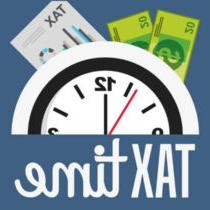
“十二种骗税”是一份针对纳税人的常见骗税清单. 由美国国税局每年编制和发布, it includes a number of aggressive and evolving schemes that taxpayers should avoid. 让我们来看看今年的“十二个肮脏”税务骗局:
1. Use of Charitable Remainder Annuity Trust (CRAT) to Eliminate Taxable Gain
在这种交易中,增值的财产被转移到CRAT. 纳税人不恰当地声称,将增值资产转移给CRAT本身,就使这些资产的基础上升到公平市场价值,就好像它们已出售给信托一样. The CRAT then sells the property but does not recognize gain due to the claimed step-up in basis. The CRAT then uses the proceeds to purchase a single premium immediate annuity (SPIA). The beneficiary reports, as income, only a small portion of the annuity received from the SPIA. 通过误用与crat有关的法律, 受益人将剩余款项视为不应纳税的投资回报的排除部分.
2. 马耳他(或其他外国)养老金安排滥用条约.
在这些交易中,美国.S. 美国公民.S. 居民们试图避开美国.S. 通过向马耳他(或其他可能的外国)的某些外国个人退休安排作出贡献来征税. In these transactions, the individual typically lacks a local connection. 当地法律允许以现金以外的形式捐款,或不以受雇或自营职业活动所得的收入限制捐款数额. By improperly asserting the foreign arrangement is a “pension fund” for U.S. 税收协定的目的,美国.S. taxpayer misconstrues the relevant treaty to improperly claim an exemption from U.S. income tax on earnings in and distributions from the foreign arrangement.
3. 波多黎各和其他外国专属保险
在这些交易中,美国.美国紧密控股实体的所有者与波多黎各或其他外国公司签订了一项所谓的保险安排,其中包括细胞安排或隔离资产计划,其中美国政府不允许投资者参与.S. 业主有经济利益. 美国.S.以美国为基础的个人或实体要求扣除由前端承运人提供的“保险范围”的费用, 哪一家公司将“保险”再保给外国公司. 所声称的保险安排的特征通常包括以下一项或多项:承保的风险难以置信, non-arm交易定价, 也没有达成协议的商业目的.
4. 货币化分期付款销售
这些交易涉及卖方不恰当地使用第453条下的分期付款销售规则,而卖方在出售财产的年度内实际上通过所谓的贷款获得销售收益. 在一个典型的交易中, 卖方签订合同,以现金形式将增值财产出售给买方,然后声称将同一财产出售给中介,以换取分期付款票据. The intermediary then purports to sell the property to the buyer and receives the cash purchase price. 通过一系列相关步骤, 卖方收到相当于销售价格的金额, 减少各种交易费用, 以无追索权和无担保的所谓贷款的形式.
5. Pandemic-related诈骗
经济影响支付和退税诈骗. 试图使用经济影响支付(eip)的身份窃贼, 也被称为刺激支出, 是对个人的持续威胁吗. 美国国税局已经发放了所有的经济影响付款, 大多数符合条件的人已经收到了他们的刺激付款.
失业欺诈导致纳税人1099- g不准确. Many taxpayers lost their jobs and received unemployment compensation from their state during the pandemic. 骗子利用这一点,利用未提交申请的个人的被盗个人信息,提交欺诈性的失业赔偿申请. Taxpayers should also be on the lookout for a Form 1099-G reporting unemployment compensation they didn’t receive.
在社交媒体上发布虚假招聘信息. 社交媒体上有很多关于虚假招聘的报道. 这些虚假帖子诱使受害者提供他们的个人财务信息,这些信息可以用来提交欺诈性的纳税申报表,以获得欺诈性退款或用于其他犯罪活动.
偷你钱的假慈善机构. 虚假的慈善机构总是一个问题. To check the status of a charity, use the IRS Tax Exempt Organization 搜索 tool. 个人不应该让任何来电者施加压力. 一个合法的慈善机构在任何时候都很乐意接受捐赠, 所以不用着急, 并且鼓励捐赠者花时间做研究.
6. 妥协要约(OIC)“工厂”
一个“提供,或OIC, is an agreement between a taxpayer and the IRS that resolves the taxpayer’s tax debt. 在某些情况下,国税局有权通过接受低于全额的付款来解决或“妥协”联邦纳税义务. OIC mills are a problem all year long but tend to be more visible right after the filing season ends, and taxpayers are trying to resolve their tax issues perhaps after receiving a balance due notice in the mail. 这些“工厂”扭曲了国税局的计划,误导人们没有机会满足要求,同时收取过高的费用, 通常是几千美元. 他们提出古怪的要求, 通常在本地广告中, regarding how they can settle a person’s tax debt for pennies on the dollar. 现实情况通常是,纳税人向OIC工厂支付费用,以获得他们自己直接与国税局合作就能获得的同样的交易.
伊斯兰会议组织的工厂只是肆无忌惮的报税者的一个例子. Taxpayers should be also wary of unscrupulous “ghost” preparers and aggressive promises of a bigger refund.
鬼编制. 尽管大多数报税员都是有道德的,值得信赖的, taxpayers should be wary of preparers who won’t sign the tax returns they prepare, 通常被称为幽灵准备者. 电子报税表, the “ghost” will prepare the return but refuse to digitally sign as the paid preparer. 由法律规定, 任何拿钱准备的人, 或者协助准备联邦纳税申报表, 必须拥有有效的报税人税务识别号码(PTIN). 付费报税员必须在报税表上签名并附上他们的个人报税号码.
膨胀的退款. 不签署申报表是一个危险信号,表明付费报税人可能希望通过承诺大笔退款或根据退款金额收取费用来快速获利. Unscrupulous tax return preparers may require payment in cash only and will not provide a receipt, 创造收入使他们的客户有资格获得税收抵免, 申请虚假扣除额以增加退款金额, 或者直接退款到他们的银行账户, 而不是纳税人的账户.
7. Scams To Steal Your Identity, Personal Financial Information, and Money
Criminals have used bogus calls, texts, emails, and posts online for years. Victims are tricked into providing sensitive personal financial information, 钱, or other information that can be used to file false tax returns and tap into financial accounts, 在其他计划中. The IRS continues to see common scams such as text messages, email phishing, and phone messages. Generally, the IRS will first mail a bill to any taxpayer who owes taxes. 所有税款只应支付给美国.S. 库,永远不会应付给第三方. Anyone who doesn’t owe taxes and has no reason to think they do should never give out any information. Hang up immediately and do NOT click links or open attachments in unsolicited, 可疑或意外的短信, 是否来自国税局, 国家税务机关, 或者是税务界的其他人.
8. 鱼叉式网络钓鱼
Spear phishing is an email scam that attempts to steal a tax professional’s software preparation credentials. These thieves try to steal client data and tax preparers’ identities to file fraudulent tax returns for refunds. Spear phishing can be tailored to attack any type of business or organization. 这是一个严重的问题,因为它可以用来攻击和窃取任何拥有客户端数据库的小型企业的计算机系统凭据, 比如税务专业人士的公司. 最新的网络钓鱼邮件使用美国国税局的标志和各种主题,如“需要采取行动:您的帐户现已被搁置。.“这些电子邮件是骗局,将用户发送到一个网站,该网站显示了几个流行的税务软件准备提供商的徽标. Clicking on one of these logos will prompt a request for tax preparer account credentials.
9. Concealing Assets in Offshore Accounts and Improper Reporting of Digital Assets
离岸账户. 随着国际税收和洗钱犯罪的增加, 许多人被认定为逃避美国法律.S. taxes by attempting to hide income in offshore banks, brokerage accounts, or nominee entities. They then access the funds using debit cards, credit cards, wire transfers, or other arrangements. 一些个人使用了外国信托, 员工租赁计划, 私人养老金, 结构化交易, 试图隐瞒账户或保险计划的真正所有人.
U.S. 个人在全球范围内的收入都要纳税. The mere fact that 钱 is placed in an offshore account does not put it out of reach of the U.S. 税收制度. U.S. persons are required to report income from offshore funds and other foreign holdings under penalty of perjury. The IRS uses a variety of sources to identify 启动子 who encourage others to hide their assets overseas.
数字资产. 在过去十年中,数字资产在全球范围内的扩散给数字资产带来了税收管理方面的挑战, partly because there is an incorrect perception that digital asset accounts are undetectable by tax authorities. 无良的推动者继续延续这个神话,并断言纳税人可以很容易地隐瞒他们持有的数字资产. 纳税人不应被误导而相信这一点, 有可能因未能报告涉及数字资产的交易而面临民事欺诈处罚和刑事指控.
10. 不提交纳税申报表的高收入个人
Most people file on time and pay their fair share of tax; 然而, 那些选择不报税的人代表了一个合规问题,这仍然是国税局的首要任务. 纳税人(尤其是年收入超过100美元的纳税人),(每年有法定申报要求的人)可能被错误地说服不申报是明智之举. 他们应该记住, 然而, that the Failure to File Penalty is initially much higher than the Failure to Pay Penalty. 像这样, it is more advantageous to file an accurate return on time and set up a payment plan if needed than to not file. 如果一个人没有申报被认为是欺诈, 罚款一般从每月5%增加到每月15%,每个月或不到一个月的回报延迟, with the maximum penalty generally increasing from 25 percent to 75 percent.
11. 滥用联合保护地役权
在联合保护地役权中, 发起人利用税法中允许保护地役权的条款,通过对未开发土地(或土地)的虚高估价来扭曲它, 对于一些专业的, 历史建筑的正面). They may also use partnership arrangements devoid of a legitimate business purpose. 这些滥用的安排无非是利用严重夸大的税收减免来玩弄税收制度,并为发起人带来高额费用. The IRS examines 100 percent of these deals, and hundreds of these deals have gone to court.
12. 滥用微型专属保险安排
在滥用的“微型俘虏”结构中, 启动子, 会计师, 或者,理财规划师说服少数人持股实体的所有者参与缺乏许多保险属性的计划. 例如, 保险公司可能“承保”不可信的风险, 不能满足真正的业务需求, 或者复制纳税人的商业保险. The “premiums” paid under these arrangements are often excessive and are used to skirt the tax law. 最近, 美国国税局(IRS)加大了执法力度,打击利用可能被滥用的离岸专属保险公司的变奏. Abusive micro-captive transactions continue to be a high-priority area of focus.
While this list is not an exclusive list of transactions the IRS is scrutinizing, 它代表了一些更常见的趋势和交易,这些趋势和交易可能在报税季节达到顶峰,因为报税是准备和提交的. 纳税人和从业人员应该始终警惕参与那些看起来“好得令人难以置信”的交易.”




